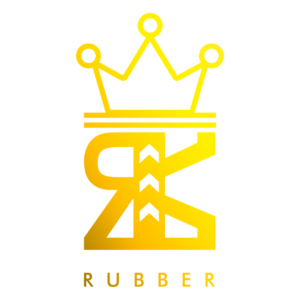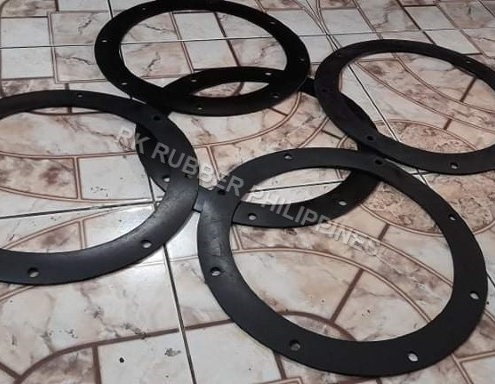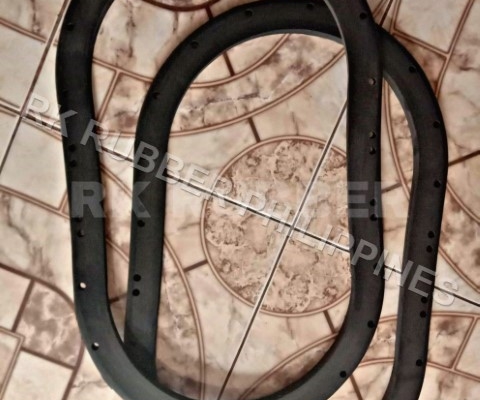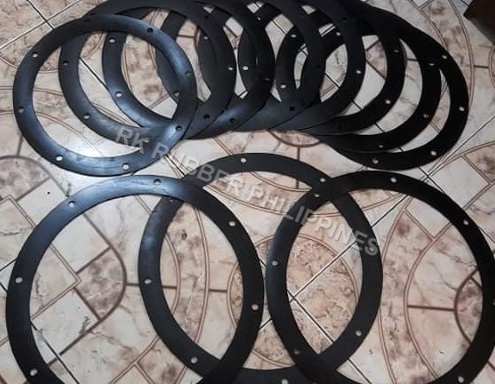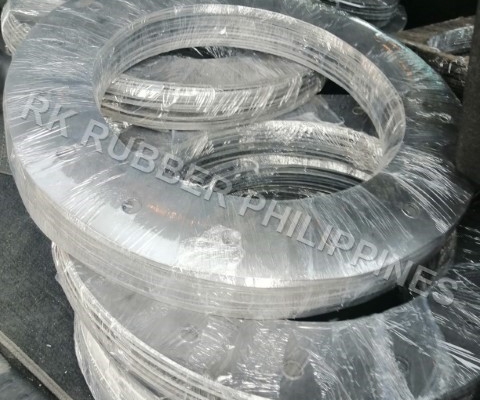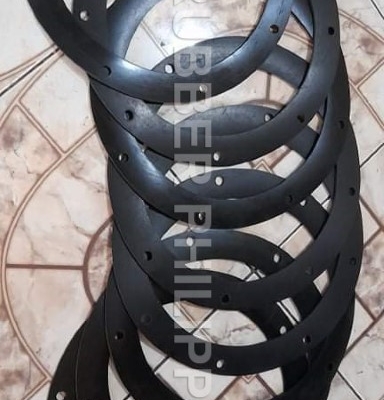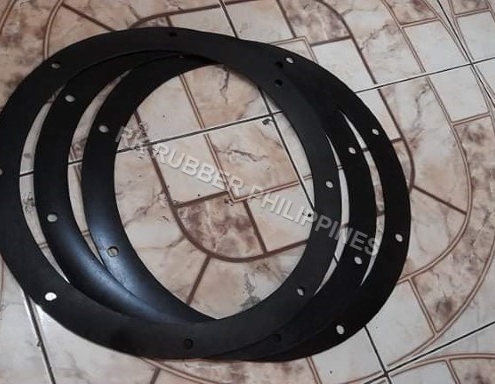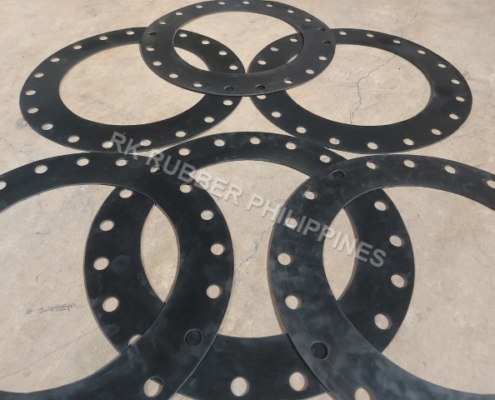Rubber Gasket
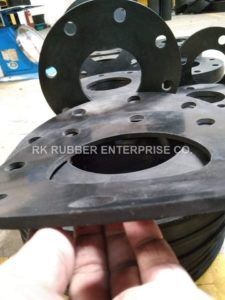
A rubber gasket is a mechanical seal to maintain a tight fit between two or more objects. It has many applications and is commonly found in machines, water pipes, and even automobiles. Made from various materials, these seals are formed into different shapes and sizes to meet an individual’s needs.
Rubber gaskets are mainly used for sealing against gas or liquid pressure and vibration and thermal expansion. They can also fill the space between two surfaces to prevent air leakage. The most common rubber gaskets are EPDM rubber, silicone rubber, nitrile-butadiene rubber (NBR), and neoprene rubber. Each type has unique properties that make it suitable for different applications.
Advantages
A quality gasket is essential for any project to ensure a tight seal and protect against leakage. The primary goal of the gasket is to seal or fill the gap between two flat surfaces, preventing leaks. Depending on the application, gaskets are made from various materials such as rubber, foam, paper, steel, and other engineered composites. They are designed to fit tight around the mating surface and provide maximum sealing performance. Gaskets have several advantages, including providing a secure connection and protection from contaminants and fluids, and they can reduce rattling between parts. Customers benefit from using quality gaskets because they prevent potential damage to connected surfaces, reduce air/fluid/gas leakage, increase performance efficiency, and provide reliable protection against corrosion. Quality gaskets are essential for any project requiring a secure seal to prevent potential damage or leakage.
Different Applications of Rubber Gaskets
Automotive Application
The automotive industry relies on rubber gaskets for a variety of purposes. Rubber gasket seals provide superior insulation and keep air, oils, and other fluids from escaping or entering the vehicle. This keeps cars running at peak performance while protecting them from wear and tear. Rubber gaskets also help keep debris out of sensitive areas of the engine, which could cause damage or impede performance. Rubber gaskets offer superior durability compared to other materials such as metal or plastic. This means they last longer, which reduces maintenance costs over time. They are also resistant to extreme temperatures and chemicals that can corrode other materials, so they don’t need frequent replacement like other parts in an automobile do.
Civil Engineering Applications
Rubber gaskets are essential to the civil engineering industry, offering many benefits and applications. Their use ensures that projects related to waterworks, oil and gas pipelines, bridge construction, and other forms of infrastructure are completed safely, efficiently, and with solid results. Rubber gaskets offer superior sealing properties than other materials, such as steel or aluminum. They also have excellent thermal insulation properties, which can help protect components from extreme temperatures and coolant fluids while ensuring their longevity. Additionally, they provide superior protection against corrosion due to their elasticity and strength. This makes rubber gaskets ideal for projects involving extreme environmental conditions or chemical exposure. Overall, rubber gasket used in the civil engineering industry provides many advantages, including enhanced sealing performance, improved thermal insulation properties, excellent protection against corrosion, and improved durability under harsh conditions.
Aerospace Applications
Rubber gaskets are an essential component in the aerospace engineering industry. They provide a reliable seal between two parts, such as airframes and engines, protecting them from external forces like dust or moisture. Rubber gaskets also help to reduce noise, vibration, and thermal expansion while ensuring the structural integrity of aircraft. Using rubber gasket seals has several advantages in aerospace engineering; they’re lightweight, durable, and corrosion-resistant. Additionally, rubber is highly compressible, making it easy for engineers to mold it into tight spaces that other materials cannot reach. This flexibility reduces the aircraft’s overall weight while providing extra protection from adverse weather conditions. When used correctly in combination with other components like adhesives or cements, rubber gaskets can create effective seals that can withstand extreme temperatures, pressures, and vibrations common in aerospace applications.
Industrial Application
Rubber gaskets are essential in industrial applications, providing a solid seal for components and helping protect them from damage. They can reduce fluids that escape from a system and keep unwanted contaminants out. Rubber gaskets come in many shapes and sizes, making them incredibly versatile and suitable for both large and small-scale applications. The strength of rubber makes it perfect for use as a gasket material; it provides superior sealing capabilities and can absorb vibration and impact without damage. It is resistant to moisture, heat, and chemicals, which allows it to perform effectively over long periods with minimal maintenance. In addition, the flexibility of rubber enables it to conform around complex shapes, making installation easier than other materials.
Rubber and Metal-type Gasket
Rubber and metal-type gaskets are sealing components commonly used in industrial space. Metal-type gaskets are made from metals like stainless steel, monel, hastelloy, and inconel, while rubber gaskets are typically manufactured from elastomers such as nitrile butadiene rubber (NBR), Viton® fluoroelastomer (FKM), neoprene or silicone.
Rubber gaskets provide superior sealing capabilities compared to their metal counterparts, making them a preferred choice in many industries. But what are the deciding factors that make rubber gaskets so popular?
The primary benefit of using rubber gaskets is that they can be produced quickly and easily, with low-cost production techniques and minimal waste. They are also better able to conform to irregular surfaces due to their soothing properties, making them ideal for applications requiring tight seals. Furthermore, rubber gaskets have excellent resistance to chemical degradation and can withstand extreme temperatures, making them suitable for use in harsh environments.
When it comes down to it, the deciding factor why choose a rubber gasket over a metal type depends on the application involved.
Below are some of the actual products.
